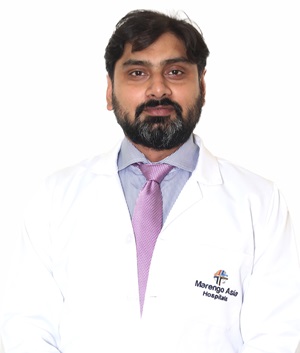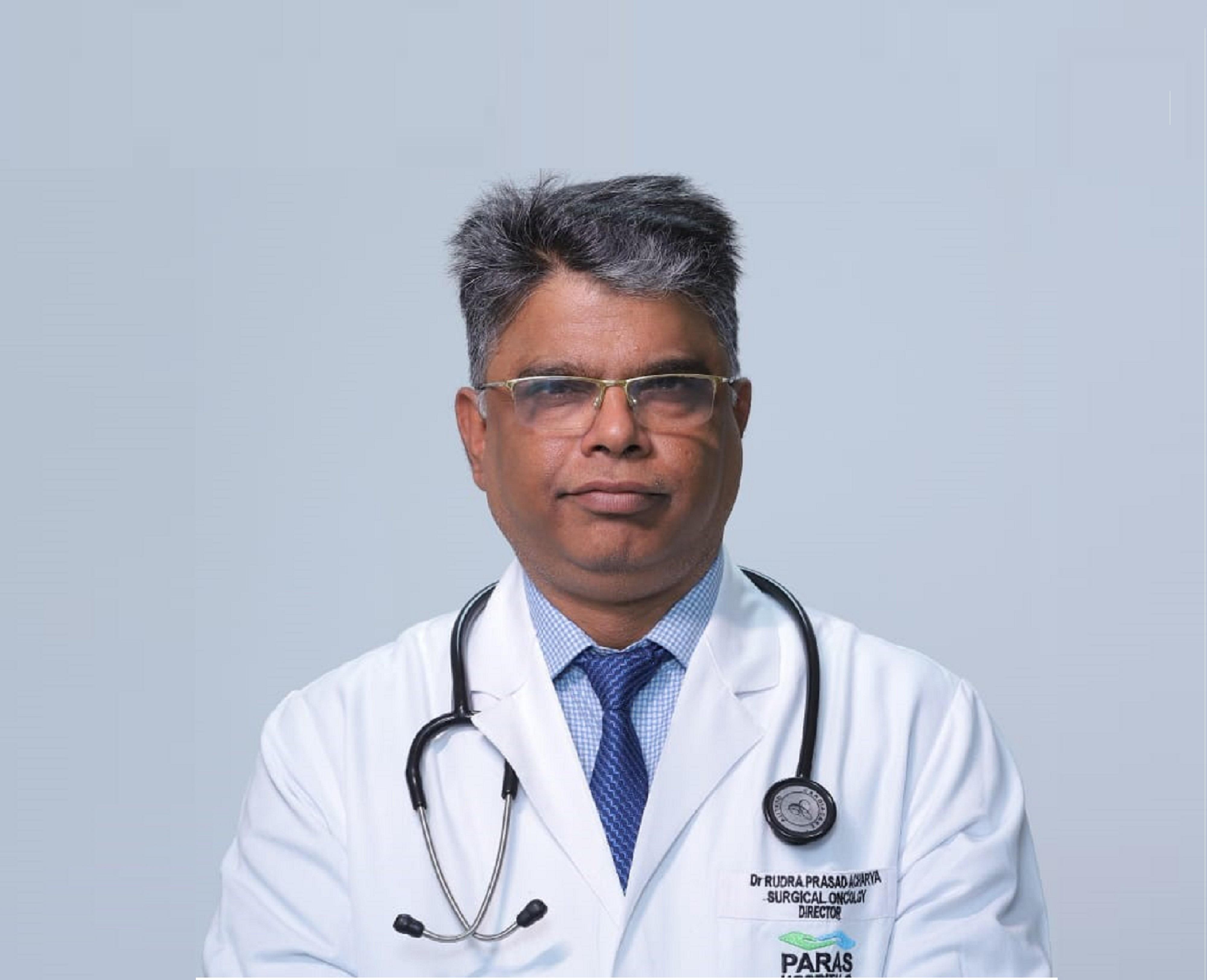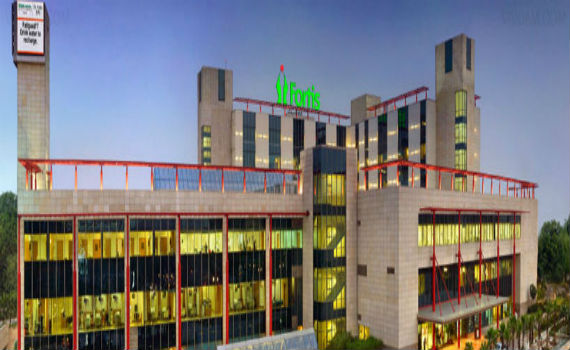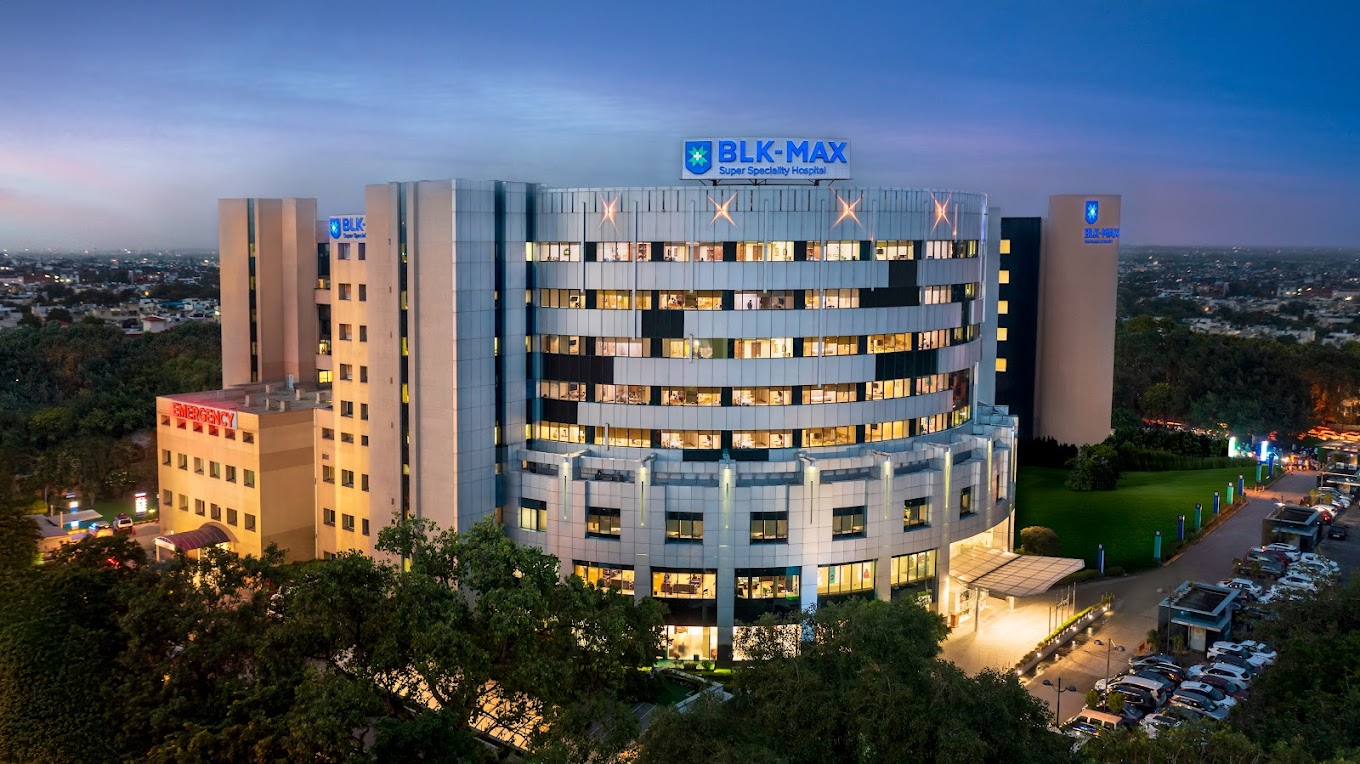Esophageal Cancer Treatment in India: A Comprehensive Guide for International Patients

Esophageal Cancer Treatment in India: A Comprehensive Guide for International Patients
Esophageal Cancer Treatment in India
Understanding Esophageal Cancer
Esophageal cancer is a type of cancer that occurs in the esophagus, which is essentially the pipe through which the food you swallow travels from your throat down to your stomach. Here's a more straightforward breakdown:
1. What is the Esophagus?
- Think of the esophagus as a food pipe or a tube that carries what you eat or drink from the back of your throat to your stomach, helping in the process of digestion.
2. How Does Esophageal Cancer Develop?
- This cancer starts in the innermost layer of the esophagus. The esophagus has several layers, and cancer usually begins in the cells lining the inside, called the mucosa.
- As the cancer grows, it can spread deeper into the other layers of the esophagus wall and eventually beyond the esophagus to other parts of the body.
3. Why Does It Matter?
- Esophageal cancer is significant because it can interfere with your ability to eat and digest food. Plus, like all cancers, it can be life-threatening if not diagnosed and treated early.
- It's also a type of cancer that's known for being particularly challenging to treat, especially if it's not caught early.
Understanding esophageal cancer is important because early detection can significantly improve treatment outcomes. Being aware of the symptoms and risk factors, and getting regular medical check-ups if you're at risk, can help catch the disease in its earlier, more treatable stages.
Symptoms
Simplified Explanation of Symptoms of Esophageal Cancer
Esophageal cancer can manifest a range of symptoms that might initially be subtle but can become more pronounced as the disease progresses. Here's a straightforward look at the common symptoms associated with this type of cancer:
1. Difficulty Swallowing (Dysphagia):
- What It Feels Like: Swallowing food or even liquids can feel challenging or uncomfortable. It might feel like the food is stuck in your throat or chest.
- Why It Happens: As the cancer grows, it can narrow the inside of the esophagus, making it harder for food and drink to pass through.
2. Weight Loss Without Trying:
- What It Is: Losing weight when you're not trying to, often significantly and over a short period.
- Why It Happens: Difficulty swallowing can make it hard to eat enough, leading to weight loss. Plus, cancer in general can affect the way your body uses energy from food.
3. Chest Pain, Pressure, or Burning:
- What It Feels Like: You might feel discomfort or pain in the middle part of your chest, not just when you eat but possibly at other times too.
- Why It Happens: The tumor in the esophagus can cause pain or a burning sensation, and as it grows, it can also press on surrounding areas, causing pain or discomfort.
4. Fatigue:
- What It Is: Feeling extremely tired or having very low energy, beyond what would be normal if you're just tired or haven't slept well.
- Why It Happens: Cancer can affect your body's ability to make healthy blood cells, which can lead to fatigue. Your body also uses a lot of energy trying to fight the cancer.
5. Heartburn or Indigestion:
- What It Feels Like: A burning sensation or discomfort in your stomach or lower part of your chest, especially after eating.
- Why It Happens: The cancer can irritate the lining of the esophagus, which might feel like heartburn or indigestion.
Recognizing these symptoms is crucial, as early detection of esophageal cancer can lead to more effective treatment. If you experience these symptoms persistently, it's important to consult a healthcare professional for a proper diagnosis and treatment plan.
Diagnosis
Simplified Explanation of Diagnosis for Esophageal Cancer
Diagnosing esophageal cancer involves a series of steps and tests to confirm the presence of cancer and to understand its extent. Here's a simplified breakdown of how doctors typically diagnose this condition:
1. Physical Examination and Medical History
- What Happens: The doctor will perform a general physical examination and ask about your medical history, including any symptoms you're experiencing, your lifestyle, and any risk factors you might have.
- Why It's Important: This initial step helps the doctor identify any signs that might indicate esophageal cancer and gather information that might be relevant to your diagnosis and treatment.
2. Barium Swallow Study
- What It Is: Also known as an esophagram, this is an X-ray examination of the esophagus.
- How It Works: You'll drink a liquid containing barium, which coats the lining of your esophagus so it shows up clearly on X-rays.
- Why It's Done: The test helps doctors see the shape of your esophagus and check for any abnormalities, like narrowing of the esophagus, which might suggest cancer.
3. Endoscopy
- What It Is: A procedure where a thin, flexible tube with a light and camera on the end (an endoscope) is used to look inside your esophagus.
- How It Works: The endoscope is gently guided down your throat and into your esophagus. The camera sends images to a monitor, allowing the doctor to see the inside of your esophagus.
- Why It's Done: Endoscopy can help doctors see any abnormal areas in the esophagus that might be cancer. It can also be used to collect tissue samples (biopsy) if needed.
4. Biopsy
- What It Is: A procedure where small pieces of tissue are taken from the esophagus.
- How It Works: During an endoscopy, special tools are used to remove a small tissue sample from any abnormal-looking areas.
- Why It's Done: The tissue samples are sent to a lab to be examined under a microscope for cancer cells. A biopsy is the only sure way to know if the abnormal areas are cancerous.
These diagnostic steps are crucial in not only confirming the presence of esophageal cancer but also in determining the stage of cancer, which is essential for planning the best course of treatment. If you're experiencing symptoms or have risk factors for esophageal cancer, it's important to discuss them with your healthcare provider, who can guide you through the diagnosis process.
Treatment Options in India
Comprehensive Treatment Options for Esophageal Cancer in India
India's healthcare system offers advanced treatment options for esophageal cancer, encompassing both surgical and minimally invasive procedures. These treatments are tailored to the patient's specific condition, stage of cancer, and overall health. Below is a detailed overview of the primary treatment options available:
1. Esophagectomy
Esophagectomy is a major surgical procedure aimed at treating esophageal cancer, especially in advanced stages or when the tumor is too large for less invasive treatments.
- Procedure Details:
- Partial or Total Removal: Depending on the extent of the cancer, the surgeon may remove part of the esophagus (partial esophagectomy) or the entire esophagus (total esophagectomy).
- Reconstruction: After the affected portion of the esophagus is removed, the surgeon reconstructs the digestive tract. This is usually done by pulling up the stomach to connect it to the remaining part of the esophagus. If the stomach is not suitable, part of the colon may be used.
- Types of Esophagectomy:
- Transthoracic Esophagectomy: Involves making incisions in the chest and abdomen. It provides a good view of the esophagus but is more invasive.
- Transhiatal Esophagectomy: Involves incisions only in the neck and abdomen, avoiding the chest. It's less invasive but offers limited access to the esophagus.
- Recovery and Considerations:
- Hospital Stay: Patients typically stay in the hospital for 1-2 weeks after the surgery.
- Postoperative Care: Involves careful monitoring for complications, nutritional support (often starting with a feeding tube), and gradual reintroduction of oral intake.
- Rehabilitation: Recovery can be a lengthy process, often involving physical therapy and nutritional counseling to help the patient adjust to changes in the digestive system.
2. Endoscopic Mucosal Resection (EMR)
EMR is a less invasive option primarily used for early-stage esophageal cancer when the tumor is confined to the superficial layers of the esophagus.
- Procedure Details:
- How It's Done: The procedure is performed using an endoscope, a flexible tube with a light and camera, inserted through the mouth and into the esophagus. Instruments passed through the endoscope are used to remove the cancerous tissue.
- Targeted Treatment: EMR targets only the tumor and a small margin of surrounding tissue, preserving the rest of the esophagus.
- Advantages of EMR:
- Less Invasive: Unlike esophagectomy, EMR does not require large incisions, which means less pain and a shorter recovery time.
- Preservation of the Esophagus: Because only the tumor and a small area around it are removed, the structure and function of the esophagus are largely preserved.
- Recovery and Considerations:
- Hospital Stay: The procedure may require a short hospital stay or be done on an outpatient basis.
- Postoperative Care: Recovery is usually faster than with traditional surgery. Patients may experience mild pain or soreness and are usually advised to follow a specific diet temporarily.
Conclusion
Treatment options for esophageal cancer in India, such as esophagectomy and endoscopic mucosal resection, provide patients with a spectrum of choices ranging from traditional surgical methods to minimally invasive procedures. The choice of treatment is influenced by the stage of the cancer, the patient's overall health, and their preferences. India's healthcare facilities are equipped with advanced technology and skilled professionals to deliver these treatments effectively. Each patient's treatment plan is personalized, ensuring that they receive the most appropriate and effective care tailored to their unique needs.
Comprehensive Treatment Procedure and Recovery for Esophageal Cancer in India
Esophageal cancer treatment is a complex process that requires a multi-faceted approach, encompassing pre-surgical preparation, surgery, meticulous post-surgery care, and comprehensive rehabilitation. For international patients, understanding the full scope of the treatment, recovery expectations, and the duration of the stay is crucial. Here’s an in-depth look at each phase:
1. Pre-Surgery Evaluation
- What It Involves: Prior to surgery, patients undergo a thorough evaluation, including consultations with oncologists, gastroenterologists, and surgeons, as well as a series of imaging tests such as CT scans, MRIs, or PET scans.
- Purpose: The aim is to gain a complete understanding of the cancer's stage, location, and impact on the body, ensuring the chosen surgical method is the most suitable for the patient’s condition.
- Patient Preparation: Patients may receive nutritional counseling to ensure they are as healthy as possible going into the surgery. They may also receive psychological support to help manage the stress or anxiety associated with the diagnosis and upcoming treatment.
2. Surgery
- Surgical Approach: Depending on the stage and location of the cancer, the surgical team decides on the most appropriate approach, whether it's an esophagectomy, EMR, or an advanced minimally invasive procedure.
- Procedure Details: For more invasive surgeries like esophagectomy, the patient is placed under general anesthesia, and the surgeon removes the affected portion of the esophagus and possibly nearby lymph nodes. The digestive tract is then reconstructed. For EMR, the procedure is less invasive, focusing only on the removal of the tumor and a small margin of surrounding tissue.
3. Post-Surgery Care
- Immediate Care: Post-operative care involves close monitoring in an ICU or recovery room, managing pain through medication, and supporting nutrition often through a feeding tube initially.
- Complication Prevention: Medical staff will also be vigilant for any signs of complications, such as infections or issues at the site of the surgery.
- Gradual Recovery: The transition back to eating orally is gradual, with dietary adjustments made under the guidance of a nutritionist.
4. Rehabilitation
- Holistic Approach: Post-operative care extends beyond physical healing, involving nutritionists for dietary management and physical therapists to aid in recovery, ensuring the patient regains strength and quality of life.
- Lifestyle Adjustments: Patients may need to make long-term adjustments to their diet and lifestyle, with ongoing support from healthcare professionals.
Post-Surgery Follow-Up
- Regular Assessments: Follow-up appointments are crucial for monitoring the patient’s recovery, managing any lingering effects of surgery or other treatments, and checking for signs of cancer recurrence.
- Ongoing Support: Continued communication with the healthcare team is vital for addressing any concerns and ensuring the patient’s overall well-being.
Estimated Stay Duration for International Patients
- Hospital Stay: While the stay varies based on the surgical method and the patient's condition, typically, it ranges from 1-2 weeks.
- Recovery Period in India: An additional stay of 4-6 weeks (or more) is recommended post-discharge for initial recovery, follow-up appointments, and rehabilitation before traveling back home.
Treatment Success Rate
- Variable Outcomes: The success rate of esophageal cancer treatment varies greatly and is influenced by factors such as the cancer's stage at diagnosis, the patient’s overall health, and the treatment approach.
- Importance of Early Detection: Early detection and prompt treatment of esophageal cancer are crucial for improving the chances of a successful outcome and a better prognosis.
For international patients, the treatment journey for esophageal cancer in India involves a comprehensive medical approach supported by advanced healthcare facilities and skilled professionals. Proper planning, understanding of the treatment process, and adherence to post-surgery care and follow-ups are essential for a successful recovery and improving the quality of life post-treatment.
Comprehensive Esophageal Cancer Treatment: Chemotherapy and Radiation Therapy Options
Esophageal cancer treatment indeed encompasses a wide range of options beyond surgery, including chemotherapy and radiation therapy. The initial focus on surgical interventions was likely due to the context of the discussion or the specific information requested. However, chemotherapy and radiation therapy are critical components of the comprehensive treatment plan for esophageal cancer, often used in conjunction with surgery or as standalone treatments depending on the stage of cancer, the patient's health, and other factors. Here's a brief overview of these treatments:
Chemotherapy for Esophageal Cancer
- What It Is: Chemotherapy uses drugs to kill cancer cells or stop them from growing. It can be given orally (in pill form) or intravenously (injected into a vein).
- Purpose: It may be used before surgery (neoadjuvant chemotherapy) to shrink the tumor, making it easier to remove, or after surgery (adjuvant chemotherapy) to kill any remaining cancer cells. In cases where surgery isn't an option, chemotherapy may be the main treatment.
- Combination with Other Treatments: Chemotherapy is often combined with radiation therapy (chemoradiation) for a more effective treatment approach.
Radiation Therapy for Esophageal Cancer
- What It Is: Radiation therapy uses high-energy rays or particles to destroy cancer cells.
- Purpose: Like chemotherapy, radiation therapy can be used before surgery to shrink tumors (neoadjuvant radiation), after surgery to eliminate any leftover cancer cells (adjuvant radiation), or as a standalone treatment.
- External Beam Radiation: The most common form of radiation therapy for esophageal cancer, where the radiation is directed at the tumor from outside the body.
- Brachytherapy (Internal Radiation): Involves placing radioactive material inside the body near the cancer cells. It's less commonly used for esophageal cancer but may be an option in certain cases.
Why Surgery, Chemotherapy, and Radiation Therapy Are Critical
- Personalized Treatment: Treatment plans for esophageal cancer are highly personalized. The choice between surgery, chemotherapy, radiation therapy, or a combination of these depends on various factors, including the cancer's location, the stage of the cancer, the patient's overall health, and the patient's preferences.
- Comprehensive Care: A multi-disciplinary team, including oncologists, surgeons, radiologists, and other healthcare professionals, collaborates to determine the most effective treatment strategy for each individual patient.
India offers these comprehensive treatment options, and the approach is always tailored to the individual's needs, ensuring the best possible outcomes. It's essential to have a detailed discussion with healthcare providers to understand the most suitable treatment options, their potential benefits, and risks based on the specific circumstances of the case.
Cost Estimation for Esophageal Cancer Treatment in India
The cost of treating esophageal cancer in India can vary widely based on several factors including the chosen hospital, the specific type of surgery, whether chemotherapy or radiation therapy is needed, and the complexity of the individual case. However, to provide a general idea:
1. Surgical Treatment Costs
- Esophagectomy: The cost for esophagectomy can range from $5,000 to $10,000.
- Endoscopic Mucosal Resection (EMR): The cost for EMR can range from $2,000 to $5,000.
2. Chemotherapy Costs
- The cost for chemotherapy can vary greatly based on the drugs used, the number of cycles required, and whether the treatment is administered as an inpatient or outpatient. On average, a single cycle can cost between $500 and $2,000.
3. Radiation Therapy Costs
- The cost for radiation therapy can vary based on the type of radiation used and the number of sessions required. On average, the total cost can range from $2,500 to $7,000.
Additional Costs to Consider
- Pre-Surgery and Diagnostic Tests: Costs for initial evaluations, diagnostic tests like endoscopy, barium swallow study, and imaging tests (CT, MRI) can add to the total cost.
- Post-Surgery Care and Rehabilitation: Includes hospital stay, medications, nutritional support, and follow-up consultations.
- Travel and Accommodation: For international patients, costs related to travel, accommodation, and local transportation should also be factored in.
Conclusion
While the cost of esophageal cancer treatment in India is generally lower compared to many Western countries, it's essential for patients, especially international ones, to get a comprehensive understanding of the potential expenses. Consulting with healthcare providers, getting a detailed treatment plan, and considering all related costs will help in making informed financial decisions and planning the treatment journey effectively. Communicating directly with the hospitals or treatment centers in India is recommended to get accurate and personalized cost estimates.
Disclaimer
This information provided is intended for general informational purposes only and is not a substitute for professional medical advice, diagnosis, or treatment. Always seek the advice of your physician or other qualified health care provider with any questions you may have regarding a medical condition or treatment. The cost estimates mentioned are indicative and may vary based on individual circumstances, the specific hospital and treatment plan, and changes in market conditions. It is recommended to consult directly with healthcare professionals or medical institutions for accurate and personalized information regarding treatment options and associated costs. Reliance on any information provided here is solely at your own risk.
Dr. Surender Kumar Dabas
Surgical Oncology
21YRS of experience
BLK-Max Super Speciality Hospital
New Delhi, India




.png)

.png)
.png)

